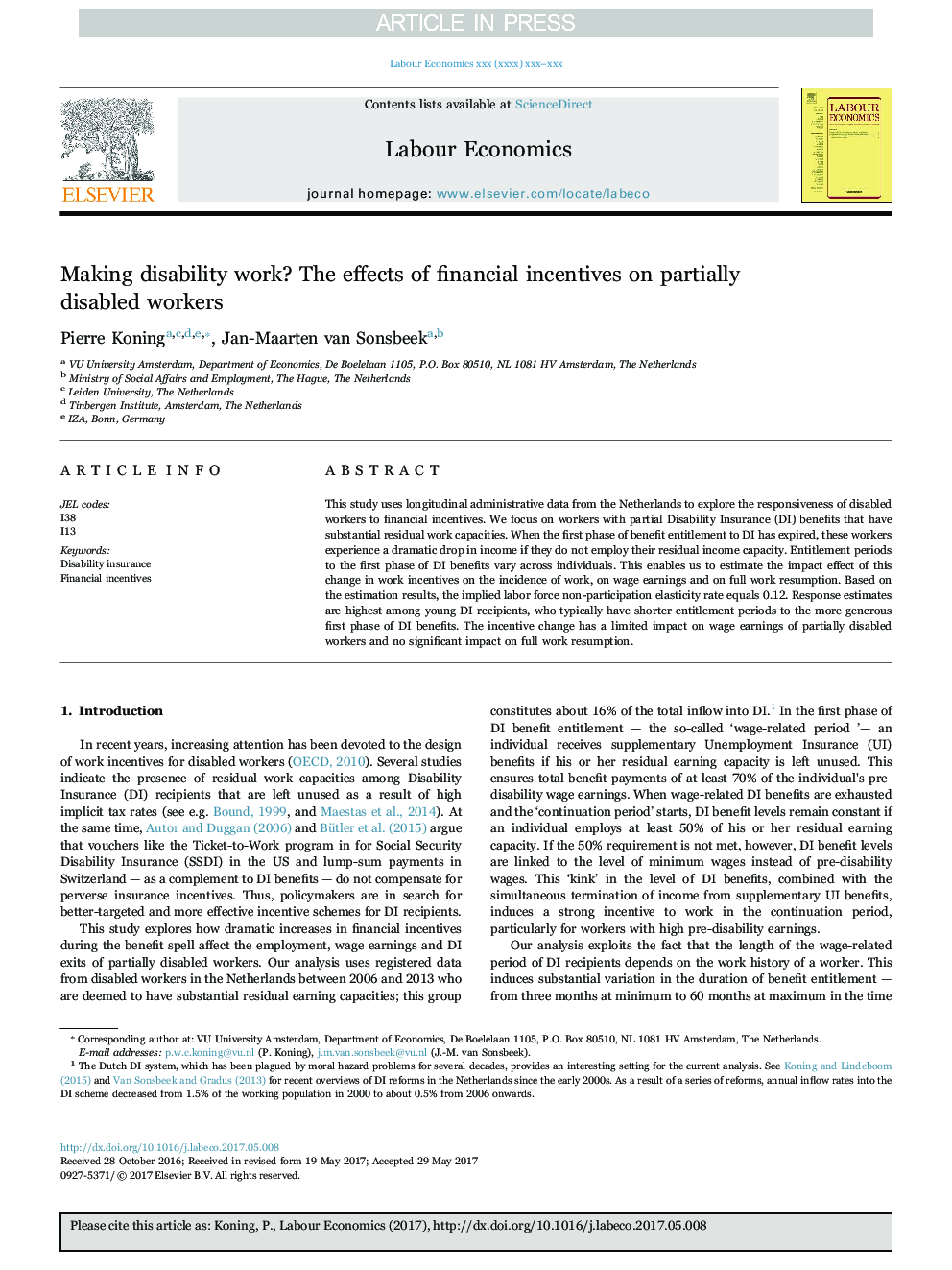| Article ID | Journal | Published Year | Pages | File Type |
|---|---|---|---|---|
| 5102016 | Labour Economics | 2017 | 14 Pages |
Abstract
This study uses longitudinal administrative data from the Netherlands to explore the responsiveness of disabled workers to financial incentives. We focus on workers with partial Disability Insurance (DI) benefits that have substantial residual work capacities. When the first phase of benefit entitlement to DI has expired, these workers experience a dramatic drop in income if they do not employ their residual income capacity. Entitlement periods to the first phase of DI benefits vary across individuals. This enables us to estimate the impact effect of this change in work incentives on the incidence of work, on wage earnings and on full work resumption. Based on the estimation results, the implied labor force non-participation elasticity rate equals 0.12. Response estimates are highest among young DI recipients, who typically have shorter entitlement periods to the more generous first phase of DI benefits. The incentive change has a limited impact on wage earnings of partially disabled workers and no significant impact on full work resumption.
Related Topics
Social Sciences and Humanities
Economics, Econometrics and Finance
Economics and Econometrics
Authors
Pierre Koning, Jan-Maarten van Sonsbeek,
